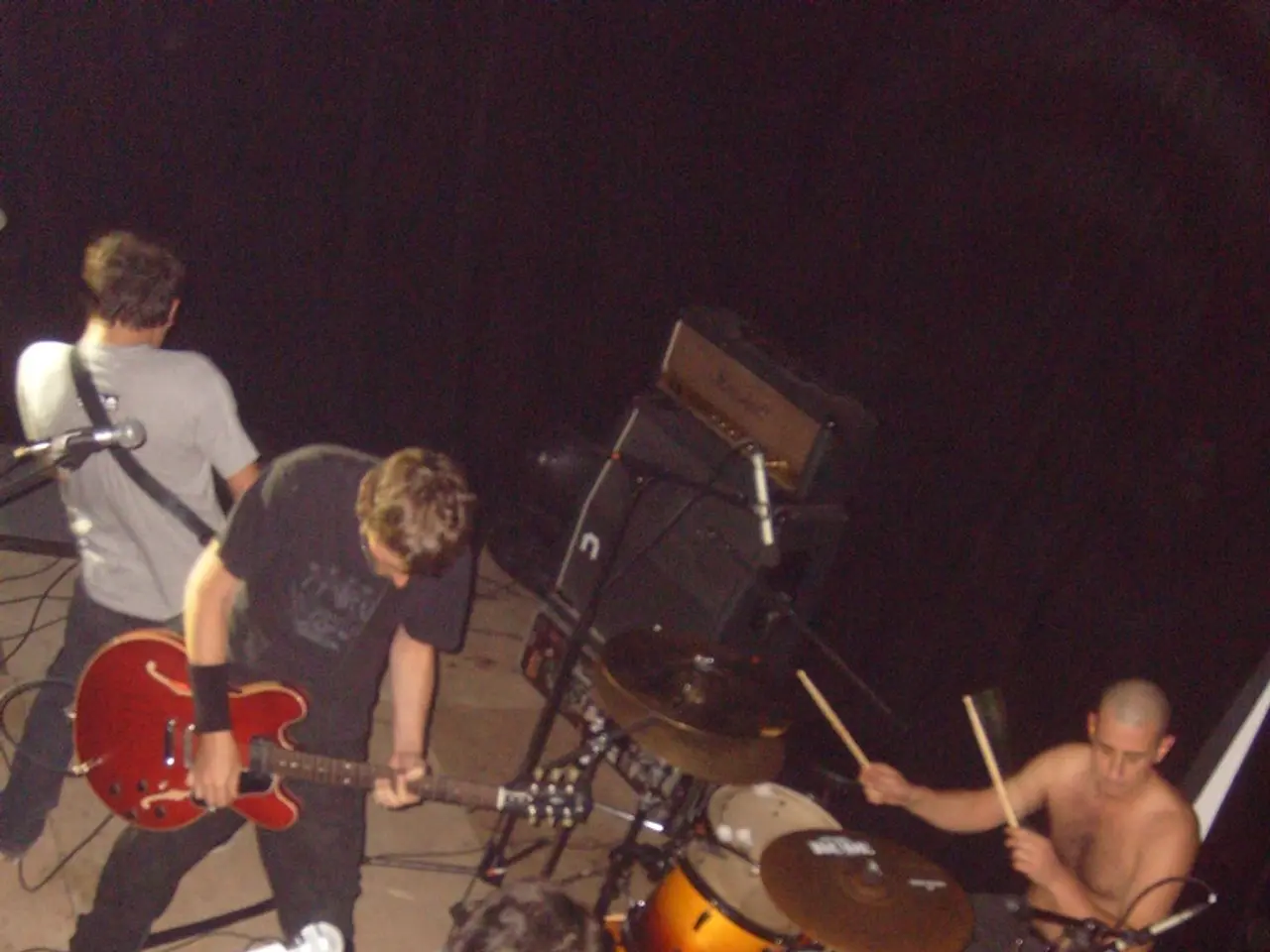Tragic news: Iron Maiden's frontman, Paul Mario Day, has passed away.
Paul Mario Day, a key figure in the New Wave of British Heavy Metal (NWOBHM), was the original lead vocalist of Iron Maiden from 1975 to 1976. Born in England, Day joined Iron Maiden at the tender age of 19, helping shape the band's initial sound and performance style[1][3][4].
Despite his brief tenure with Iron Maiden, lasting around ten months, Day made a significant impact on the band's early identity. He contributed to the raw energy that characterised the NWOBHM movement[1][3][4]. Although he did not record any studio albums with the band, his role was instrumental in laying the groundwork for Iron Maiden's later definitive sound and success.
Day's contributions to British rock and Iron Maiden's early development include co-authorship of the song "Strange World," which appeared on Iron Maiden’s self-titled debut album, though officially it is credited to Steve Harris[1][5]. Regarding the lack of formal credit, Day stated that the issue had been "resolved" in 2019, and he no longer harbored any resentment[5].
After leaving Iron Maiden, Day continued to influence the British rock scene. He fronted the band More, which released the album Warhead in 1981 and gained success on the NWOBHM circuit, including memorable shows such as the 1981 Monsters of Rock festival at Castle Donington[2][3][4]. In 1985, he joined a reformed version of the glam rock band Sweet, contributing notably to their live album Live at the Marquee recorded in 1986[3].
Day’s legacy is recognised as foundational within the NWOBHM scene. Despite not achieving mainstream stardom with Iron Maiden, his early involvement helped shape a pivotal movement in British metal history. His passing in July 2025 led to widespread tributes acknowledging his impact on the music and his status as a “well-loved figure in British rock music”[1][2][4].
The news of Day's death was reported by a reputable music publication, Billboard[6]. Day's departure from Iron Maiden was due to a perceived lack of "energy and charisma" on stage, and he was replaced by Dennis Wilcock and later by Paul Di'Anno[5].
In conclusion, Paul Mario Day, although his time with Iron Maiden was brief, played a crucial role in establishing the band's early sound and identity. His contributions to British metal continued even after his departure from Iron Maiden, making him an essential figure in the NWOBHM scene.
[1] Billboard [2] Classic Rock Magazine [3] Metal Hammer [4] Louder Sound [5] Blabbermouth [6] Billboard
Energy and entertainment were during Day's tenure with Iron Maiden and subsequent career in British rock, key aspects that marked his performances. His influence extended beyond pop-culture icons to encompass music, as he contributed to the signature sound of the New Wave of British Heavy Metal (NWOBHM) movement.





